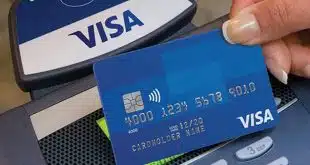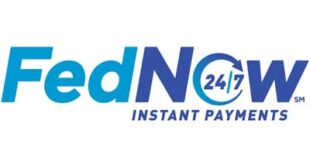Square Inc. on Wednesday introduced an enhancement to its Card Case wallet application that detects when a user is near a participating store and automatically links the user’s phone to the store’s Square account. By relying on this method, which the San Francisco startup calls automatically opening a tab, the user can walk in and make a purchase without removing his phone from his pocket.
The enhancement brings Card Case, a service Square introduced in May, in line with what appears to be a nascent trend toward hands-free in-store payment technology. PayPal Inc. earlier this month unveiled a service it calls Empty Hands, which it plans to launch early next year. It will allow PayPal account holders to access their digital wallets by entering a phone number and a PIN in a store’s point-of-sale terminal.
The new Card Case app works for now only with Apple Inc.s iPhone 4 and iPhone 4S, though Square plans to launch an Android version later, according to an account in the San Jose Mercury News. Square did not return a call from Digital Transactions News seeking comment.
The app relies on a new geo-location feature in iOS 5, the recently introduced operating-system upgrade for Apple mobile devices, that detects when users are within 100 meters of a Square merchant location and automatically opens a tab with that merchant. A meter is a little more than a yard. The feature works only if users enable it.
As with the original Card Case application, a clerk inside the store can bring up a screen showing the user’s photo as authentication. The user gives his name, and the transaction is charged to the card he has linked to his Square account. The user then receives a text receipt. Square has signed up 20,000 merchants so far to accept Card Case, according to the newspaper account.
While Card Case transactions are considered card-not-present payments, which carry higher interchange than card-present transactions and so are more costly for merchants, most sellers aren’t likely to let that bother them, says Russ Jones, a partner at Glenbrook Partners, a payments consultancy in Menlo Park, Calif. “The merchants doing this are selling modest-cost things,” he says. “There’s just pennies of difference between card-present and card-not-present. I think the merchant would be delighted to pay that to get more sales. The bagel guy is trying to sell you a bagel. He’s not trying to minimize his payment-acceptance costs.”
The Card Case enhancement is the latest in a string of changes Square, not yet 2 years old, has announced in recent weeks. Earlier this month, the company said it was eliminating holds on funds for new merchants and was crediting their accounts the ncxt business day. It announced it now has more than 800,000 merchants using its original product, a dongle that attaches to a smart phone through the device’s ear jack and allows merchants and individuals to swipe cards for payment. That's an increase of 300,000 devices since May. Square also eliminated its signature requirement for transactions under $25 and simplified its checkout process for phones running iOs, so that transactions take as little as four seconds.
Jones says Square, often dismissed by some observers as the beneficiary of the Silicon Valley buzz surrounding one of its founders, Twitter co-founder Jack Dorsey, has begun to make its mark in payments. “It’s buzz, but there’s something also tangible about Square,” he says. “I’m amazed at the number of places taking cards using Square. It’s not a lot different from where PayPal was a year into their ramp-up.”




